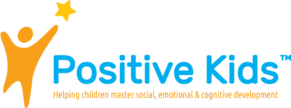Learning
Learning Aspects of ADHD
Children who have been diagnosed with ADHD will often have challenges with learning. While we know ADHD – doesn’t compromise the natural intelligence a child has, it may hinder how they are able to live out their intelligence. Children with ADHD often don’t struggle with the knowing- it’s in doing what they know and performing which presents real challenges. The part of the brain responsible for planning and executing performance is called “Executive Functioning.
Executive functioning skills are the set of processes that are responsible for controlling, managing and regulating many cognitive abilities such as planning, organizing and working memory. These particular activities are crucial to acquiring information, organizing and recalling it when necessary and may affect the following:
• Managing time for school work
• Losing Foresight of how lengthy or demanding school work or homework might be
• Planning for projects and assignments
• Starting a task and finishing a task
• Staying focused and attuned to a task at hand
• Improvising or being flexible in the face of setbacks
• Following instructions
• Determine and prioritizing what the focus will be for a task
• Organizing and ordering thoughts
• Organizing possessions
• Applying old directions to new projects or tasks
• Taking into account or remembering consequences of past successes or failures
The Learning Dimension of the LEBS Model focuses on helping children with the following:
• Organization
• Planning
• Prioritizing
• Self-monitoring
• Goal setting
• Time management
• Advocacy
• Motivation
• Content
We utilize school work and assignments to mirror real life responsibilities and expectations thereby making school work relevant. Our coaching sessions are delivered in individual sessions with a coach in one(1) hour to three(3) hour increments.. Ultimately our goal is to teach your child to develop self control, and encourage him/her to problem solve by giving them the right tools and resources
Our coaching methods are comprised of:
• Setting up and creating systems for organizing content, schedules for class, homework, expectations and other responsibilities
• Sourcing Apps, charts, tools, resources to assist with tasks and assignments for school
• Monitoring progress for course work and graded tasks
• Advocating for appropriate accommodations and making sure accommodations are made available
• Modelling and identifying learning preferences
• Helping students organize their work and making sure they have everything they need for each course
• Teaching students how to connect with teachers, express their needs and seek clarification and elaboration on expectations
• Anything that would be good or helpful in making your child thrive in school
Children with ADHD may also struggle with learning disorders or learning differences. This means that the way they learn may not be typical or traditional when compared to neuro-typical children. As a result, they may need additional support to overcome some difficulties associated with learning.
Learning difficulties include but not limited to the following:
• Dyslexia – difficulty with words
• Dysgraphia – writing difficulties
• Dyspraxia – motor difficulties
• Dyscalculia – difficulty with mathematical calculations
Positive Kids is the right environment and has the right professionals to help children diagnosed with ADHD who have learning disorders or challenges.
